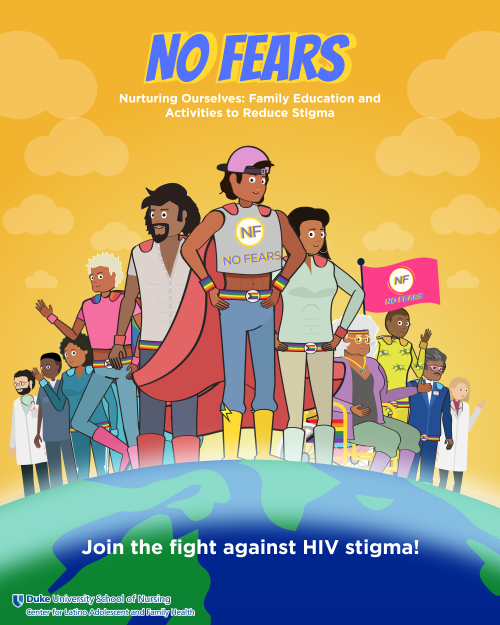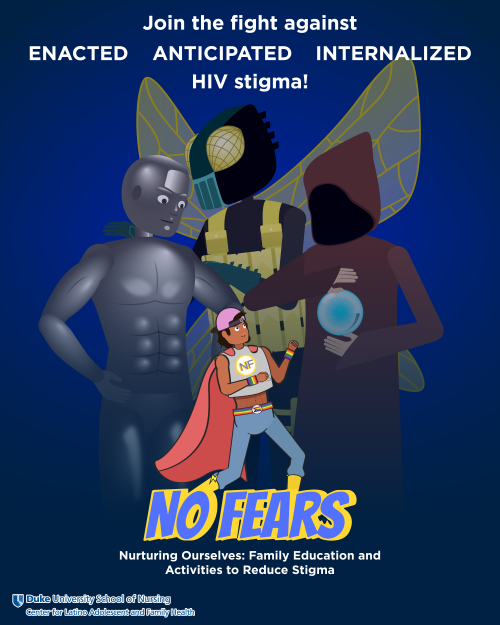School of Nursing Center Launches New Online Series to Reduce HIV Stigma Among Youth Living with HIV
The Duke University School of Nursing Center for Latino Adolescent and Family Health (CLAFH) launches NO FEARS (Nurturing Ourselves: Family Education and Activities to Reduce Stigma).

The Duke University School of Nursing Center for Latino Adolescent and Family Health (CLAFH) launches NO FEARS (Nurturing Ourselves: Family Education and Activities to Reduce Stigma), a family-based online program to reduce HIV stigma among youth living with HIV.
“Stigma continues to be a key driver of HIV inequities and an important barrier to achieving national goals for ending the HIV epidemic,” said Vincent Guilamo-Ramos, PhD, MPH, LCSW, RN, ANP-BC, PMHNP-BC, FAAN, dean, Duke University School of Nursing, vice chancellor, nursing affairs, Duke University and director and founder, CLAFH. “It’s particularly prevalent for young people at risk of or living with HIV.”
Family-based Support
The NO FEARS program is inclusive and intended for diverse families. Activities for youth and their parents can involve all kinds of primary caretakers or parental figures such as biological parents, adoptive parents, grandparents, aunts or uncles, or an adult figure within a chosen family.

Online Structure
There are two components to the online program. First, an animated video series that highlights the experiences of No Fears, a stigma-fighting superhero, who is also an adolescent living with HIV, as he and his family overcome three HIV stigma villains. Second, a family workbook that outlines specific family activities designed to reduce the impact of stigma on youth living with HIV and increase youth’s well-being and adherence to HIV medication.
The program is structured in six modules, each consisting of an episode of the animated NO FEARS video series and a corresponding workbook chapter. The strategies and activities included in the NO FEARS intervention are rooted in evidence-based literature demonstrating effective methods of reducing stigma and supporting youth as they develop and transition into healthy adulthood.
All six modules are available free at clafh.nursing.duke.edu.
“Our goal is to promote the future health and life opportunities for the 3 million youth ages 15 to 24 living with HIV globally, and the more than 45,000 youth ages 13 to 24 estimated to live with HIV in the U.S.,” said Ramos.
About CLAFH
The Center for Latino Adolescent and Family Health (CLAFH), launched at Duke in September 2021, is designed to meaningfully engage the Latino community to identify, understand, and collaboratively address the underlying drivers of health and social inequities. The Center strengthens the role of families in supporting adolescent and young adult health and life opportunities, and it develops and evaluates innovative, nurse-driven models of health care delivery that improve access to prevention and treatment services in underserved communities—driving real-world impact, locally and nationally.